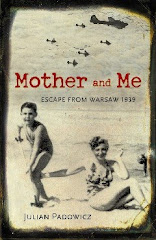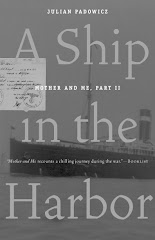Recently, I told you about my undistinguished, fictional friend Kip, rattling around in the back of my head, and the book, “Writer’s Block,” that I had to write in order to get rid of the rattling. What I didn’t tell you was that the rattling didn’t stop with the end of the book. It seems that I got so deeply involved with Kip and his friends that I found myself suffering withdrawal symptoms and immediately set about writing a sequel. After finishing the sequel and some wondering what to do next, I still had so much unfinished business with Kip that I decided to do a trequel.
In writing the original sequel, I began with Kip and Amanda in Europe, where I had left them, and proceeded to bring them back to the little Village of Venice, Mass., where Kip is now a local hero because of what he did in the original book, plus the book he has written while in Europe. This immediately set up a broad range of possibilities and I began writing the opening chapter without bothering to do an outline, but with the confidence that, with all the possibilities, something would develop.
And it did. But, as I approached the trequel, I did not see the natural plot possibilities ahead of me, and decided to do an outline so that I would know where I was heading. And that outline required a dramatic ending in which Kip confronts the abusive father of a troubled fourteen-year-old boy, whom he is mentoring, that convinces the boy that he cares about him.
This gave me a very confined stage to work on. Being seventy years old, Kip is not about to get into a fist fight with the man, and I just could not come up with a way of resolving the conflict between the two men that would be in keeping with the tone of the story. Usually, my run/walks produce solutions to such problems, but no ideas that this technique developed seemed to fit the situation.
Then I asked the advice of a friend of mine, who is a therapist. “Is there some exercise for extending your creativity?” I asked him. “Something to help you to think ‘outside the box’?” My wife has a wonderful capacity for thinking outside the box, which I very much envy.
“What you do,” my friend suggested, “is tonight, before going to sleep, you ask your unconscious to help you.” My friend is a disciple of Milton Eriksen, the famous hypnosis therapy guru, and I should have known that he would suggest this approach to the problem.
“You tell your unconscious how grateful you are for all the ways it has helped and protected you throughout your life,” he continued, “because the unconscious is very susceptible to flattery, you know, and then ask it to help you to find a solution to your problem.” He also explained that the unconscious is generally quite inclined to help you in life since it knows that, “if you’re out of business, it is out of business.” Then he added, “You may wake up with a solution.”
That night, I tried my friend’s technique. I was, of course, skeptical, but I had nothing to lose and a lot to gain. As my wife turned out the light, after watching one of the BBC comedies that we enjoy so much, I turned my attention to my unconscious and, following my friend’s instructions, said something like, “I want to thank you for all the ways that you’ve helped me and protected me in the past.” As you can imagine, it wasn’t easy saying that, even silently and in the dark, but I continued. “But now I need your help in a small writing problem. As you probably know, I’ve got to come up with some kind of dramatic conflict between Kip and Erik’s father that will convince the troubled Erik that Kip cares about him. I’ve been looking for a solution for a couple of weeks now, and I need to start thinking more outside the box.” Then I went to sleep.
The next morning I woke up with a headache. The temptation was to take that as a “Do not disturb.” I could visualize my unconscious playing Chinese checkers with my libido. I was tempted to say, “I knew it wouldn’t work,” but didn’t dare to, just in case someone was listening.
Later in the morning I went for my run and, about a mile and a half into the run it occurred to me to introduce a third element into the confrontation, along with Kip and Erik’s father – a hurricane.
In a more serious drama, introducing a hurricane at this particular point would be considered gimmicky. But this is a humorous story and, in that context, I felt it would be acceptable. So I wrote in a hurricane and Kip’s concern for his new sailboat which needs to be secured against the wind, but he is not willing to leave Erik alone with the abusive father, and I had a dramatic climax.
In the week or so since then, I have found myself coming up with solutions to other problems that I consider to be from “outside the box.” As you can imagine, for a writer of fiction, this is, indeed, a valuable ability. In the past I have considered myself a good “storyteller,” that is someone who can do a good job dressing up a story, once there is a story to dress up. But I have considered myself weak in the area of actually creating a story. Now, hopefully, with the help of my new internal friend, this will all improve. You might give it a try.
Saturday, February 6, 2010
Subscribe to:
Post Comments (Atom)



No comments:
Post a Comment